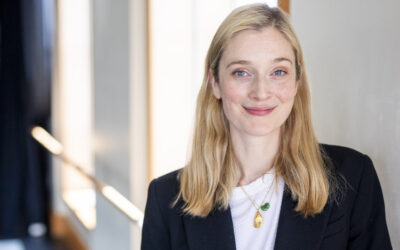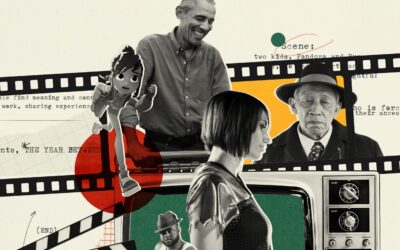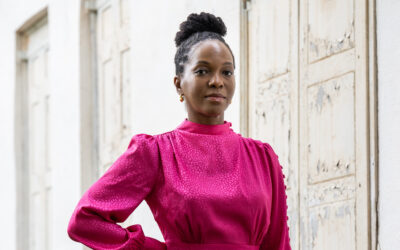
A mentor helps teens open up a world of possibilities
As entrepreneurship education coordinator at the Possible Project, a Cambridge-based after-school program focused on developing student ventures, Shami Andalcio Bery ’07 teaches and mentors high schoolers to help them cultivate an entrepreneurial mindset and apply their passions and principles to creating new businesses.
How did your own entrepreneurial mindset develop?
Junior year at CA, a few friends and I started making T-shirts for fans of our sports teams, hoping to build a stronger sports culture at the school. After graduating, I took a semester off and joined some friends in New Orleans who had started a clothing line, then continued the same kind of enterprise as a student at Brandeis. Over time, my focus turned to the ways creative endeavors could spread messages of positivity, equity, and unity. For example, words on a T-shirt can promote a message people may not feel entirely ready to hear. But if they like the shirt, they explore the idea by wearing it, and a dialogue begins. At its best, an entrepreneurial mindset is when your heart, your head, and your hands are working symbiotically to create a material object while also promoting a principle.
When your students’ ideas don’t succeed, how do you help them learn from that experience?
A lot of young people construct a plan in their heads and if it doesn’t work the way they envisioned, they become disheartened, believing everything they’ve built for themselves has come crashing down. I try to introduce the idea of flexibility. I tell them if you mess up, that’s your opportunity to learn something. If you’ve tried something that doesn’t work, you make adjustments or pivot and find a different path. This was something I was lucky to experience at CA. In that very nurturing environment, if you made a mistake there was always a way to make it right. It taught me that what matters is not what goes wrong but what you can do to fix it.

How can adults help in this process?
As adults, we need to trust the young people in our lives to figure out what they want and believe in themselves. My students get frustrated when I ask about their plans for the future because they’re used to adults asking them and then giving unsolicited advice: “This is what I think you should do” or “This is why what you want to do isn’t going to work.” I tell them I want to know so we can put a plan together to make it work.
What qualities blossom when students engage in an entrepreneurial mindset?
Proactivity and confidence. That’s different from self-assurance. Not just being able to go out and do something, but really engaging in conversations with yourself: “Who am I? What is it that moves me?” Once you figure that out, you can envision your own path and how you will proceed. It doesn’t have to be just one thing. I’ve been a businessman, a fashion designer, a sports coach, and now a teacher. In all those versions of myself, I had the confidence to work with the resources I had to make my goals possible.


